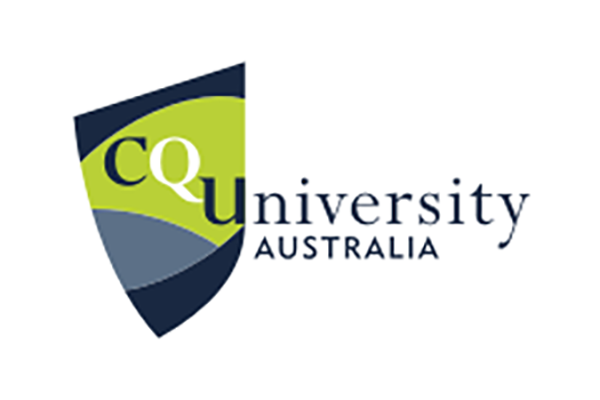The challenge
-
CQU challenged its leaders to radically rethink its six key elements of its service delivery.
-
To ensure new ideas had quality execution, the University wanted to ensure consistent, thoughtful leadership within its leadership teams.
The solution
-
HFL designed a bespoke leadership and capability coaching program that supports both academic and professional CQU leaders.
-
New capabilities have allowed CQU leaders to improve student experience, research, people and communities, and the organisation’s reputation and sustainability.
How it happened
In 2019, Central Queensland University’s (CQU) new Vice Chancellor (VC), Professor Nick Klomp, wanted a significant organisational transformation.
He challenged CQU’s academic and professional leaders to “disrupt the status quo”, asking for big ideas that improve six key strategic pillars. That is: student experience, research, CQU’s people and communities, and the organisation’s reputation and sustainability.
To attain that goal, CQU needed to ensure its academic and professional leaders had a consistent and high-quality understanding of academic development, the university’s business context, innovation, and leadership.
This isn’t a small ask. CQU is Australia’s largest regional university, with 17 campuses and nine delivery sites. And alongside its own student body, CQU has established a large network of social innovation and engagement partnerships that stretch across Australia and far overseas.
Disrupt the status quo
How did CQU make its leaders ready to drive such significant change? Barbara Miller, Director, People and Culture at CQU, asked HFL to build a bespoke coaching program.
Broadly, HFL was asked to accelerate three leadership capabilities:
-
Leading the Team
-
Communicating Effectively
-
Leading Change
And measure modeling of five core CQU values:
-
Engagement
-
Can Do
-
Openness
-
Leadership
-
Inclusiveness
Miller explains the program below.
What were the criteria for participation?
“These days, all university staff have a student-service focus,” says Miller. “We don’t differentiate between professional or academic staff. Our collective goal is to ensure our students have the best possible learning experience. To do that, we all need to be on the same page, and focus our leadership effort.
“All 80 directors, deans, and senior executive managers were invited to participate.
“Being part of an educational institution, our staff are committed to continuous learning and improvement. From the previous programs I’ve run, I knew they’d be very keen on furthering their leadership development.”
How was coaching received?
“There were people who had never experienced coaching before.
“It opened their eyes to the world of coaching and how valuable it could be.
“That was a major success of the program.
“The rest had participated in development before. But leadership coaching, focussing on the management of introducing the new strategic plan, gave them a different perspective.
“Our VC Nick’s input was also incredibly valuable.
“As a new leader, he showed people, by his own participation, that nobody is too good or too highly placed to continue to develop and grow.
“Some found it so valuable that they asked to continue – to help them through the ongoing transition.
“One person has a very diverse role, with two directorships to take care of. She clicked well with her coach and they’re continuing to build her management skills and techniques together.
“Another is always hungry for development. She’s got a really difficult role and got so much from the sessions.” What changes have you seen?
“Our people put in a lot of preparation work and were open to what the coaches had to share.
“That approach has repaid them in spades. It’s really helped them through what’s been a pretty tough transition phase.
“The tools the coaches gave the executive team have embedded and are being used. There’s “A lot more visible emotional intelligence”, she says.
“People are thinking through decisions or actions and stopping to get advice before reacting - much more than they ever have.
“Collaboration has also increased. We’re stopping to think, ‘Hang on, who else might be a stakeholder in this?’ Coaching has been transformational, she says. “I’m still hearing ‘When I spoke to my coach…’ or ‘My coach told me that I should be doing more of…’
“The concept of leadership development is now permeating through to the next level of supervisors and managers.
“There’s so much more encouragement for people to participate in coaching.
“Now I get calls saying, ‘I think this person needs a coach’, or ‘I think this person could do with a mentor’”.
How important was the Vice Chancellor’s support?
“Nick’s approach was clear – ‘No one is too big to not get something from [strategy and coaching]’”.
“He said, ‘This is my vision for the university. Leadership coaching is one of the things that can contribute to achieving that vision. This is something I want to do. I want to invest in you. I would really appreciate your participation. Barbara will be in touch.’
“With that backing, we knew we could draw the most from our coaching investment.”
How was the program structured?
HFL’s coaching program included a 180 review of each participant’s performance and behavioural style, and asked each participant to create a personal growth plan.
Miller says, “We gave our leaders three themes to work on. Communication was top of the list, then leading the team and leading change. The results from the 180 surveys [collating feedback from managers and their direct reports] were a really helpful start.
“With each participant’s review results and the strategic plan in hand, we had great briefing information for HFL. We could make sure everything was in alignment.”
Did staff share the growth plans they’d developed with their bosses?
“We encouraged everyone to share their growth plans with their supervisors,” Miller says.
“If you and your boss have known each other for ages then it’s likely you’re fairly open with each other and can talk about each other’s faults.
“Personal development plans can be just a normal conversation.
“But if you don’t have that connection or haven’t done a plan before, then sharing growth plans with your boss is a great opportunity to open up that really important dialogue.
“Because staff had already experienced growth conversations during [their coaching], they could then describe accurately what kind of leader they want to be, and how they would react to new circumstances under the strategic plan.” How were the logistics managed?
“One of the many things that was really fantastic about HFL was that I didn’t have to worry about the logistics, about how to run things. HFL’s project management approach was brilliant.
“We started the preparation work in September,” she says.
“[The timing of the strategic plan meant that we had] to schedule coaching sessions during the end of year period, between semesters.
“HFL’s ability to run programs online made it easier for our people. We couldn’t have undertaken coaching for such a big group of people ourselves. We would’ve had to run the program bite-size, over a much longer period – time we didn’t have.”
What about the coaching?
“HFL coaches have great breadth of personal management experience and facilitation expertise in getting their knowledge and their message across.
“It wasn’t about them telling us what to do. It was very much about people being empowered to use their own resources.” In addition, she says, “The summary feedback they gave from the sessions was invaluable.
“The last leadership day for ten of our executives was a planning-come-counselling session – exactly what we needed.
“It was a great example of allocating us the right coach for the right session. He was so, so very good. We all clicked with him and felt very comfortable.” Is there anything you’d do differently if you ran a similar project in the future?
“With more time and the right conditions, I’d probably like to do a bit more work with smaller groups and sitting down together in the same place.
“I’d also do more to capture their expectations and to follow-up whether their expectations were met. [I’d like to make] sure that the ROI was there for each person.”
How does coaching fit CQU’s broader strategic goals?
“Our new strategic direction builds on our strength as the leading university catering to regional Australia. It also incorporates the rapidly evolving expectations of the tertiary education sector.
“Change is impacting every area of CQU. We had to absorb major changes to the way we operated internally, and to our delivery of the student experience.”
This change could also be seen as an opportunity, Miller says.
“With this deep look into everything we were doing, we wanted to make sure everybody had the opportunity to be developed - to spend some time on the balcony, reflecting on their own leadership.”
“This coaching felt particularly important, and appreciated because our strategic plan took us into unchartered waters.”
Want to know more?
Subscribe to the HFL mailing list below.




